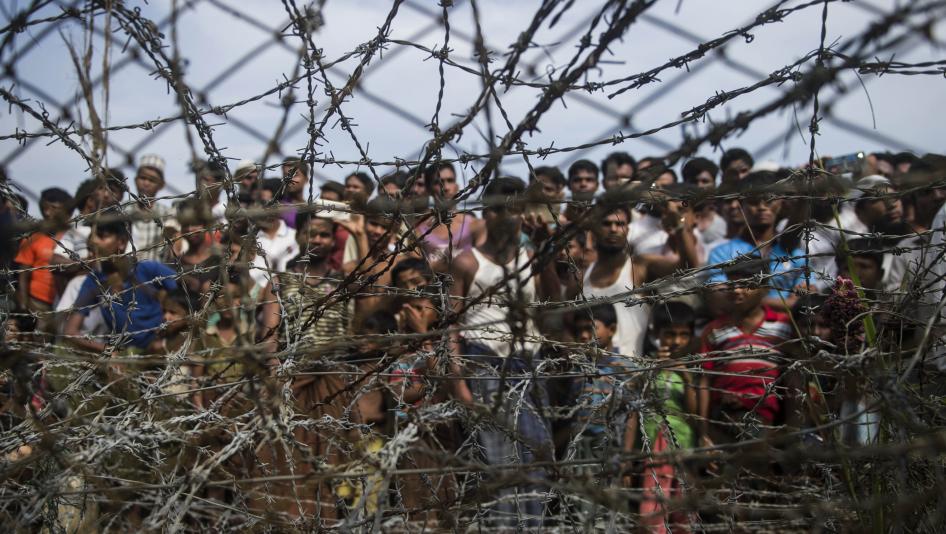In a bid to assure the internal security of the country, Bangladesh has started fencing Rohingya camps in the country’s Cox’s Bazar area in order to prevent the Rohingyas from spreading deep inside the country. This move has caused chaos among the left-leaning pseudo-intellectuals of India and across the globe.
Bangladesh authorities have announced that they have started the process of erecting barbed wire fence around Rohingya camps in the country’s Cox’s Bazar district.
Nearly 7,45,000 Rohingya refugees have been living in Bangladeshi camps since August 2017, following a wave of persecution and violence in Myanmar that the UN has described as ethnic cleansing and genocide.
Several human rights groups have been criticising Bangladesh’s this move among several others. Bangladesh has notably on many occasions shown its concern over the security threat posed by Rohingyas to the entire South Asian region.
Bangladesh Army chief General Aziz Ahmed has announced recently that their preparation is on full swing. The pillars are being constructed at the cantonment. He said that the demand for buying wire for erecting the fence had been placed and it would take some time for the process to be completed. He also revealed that the government has sanctioned the construction of a 287km road along the Myanmar and Indian border.
“Our preparation is on full swing. In one camp some pillars have already been erected. The pillars are being constructed at the cantonment. We are taking it from there to erect”, said Ahmed.
Bangladesh’s Home Minister Asaduzzaman Khan has also announced on September 26 that they would soon install barbed wire fences around the camps “as per the directive of the prime minister to maintain law and order in the camps and ensure safety and security.”
New York-based rights group ‘Human Rights Watch’ criticized the several moves taken by the Bangladesh authorities for the security of the country, saying that such moves violate refugees’ rights to freedom of movement. It said that while the authorities have a duty to protect camp residents, security measures should not infringe upon basic rights and humanitarian needs. The proposed measures do not meet the standards of necessity and proportionality for restricting free movement under international human rights law.
Interestingly, this move comes after the Sheikh Hasina government has decided not to teach Bengali to the Rohingyas.
Bangladesh has mandated education for Rohingya children in Burmese, English or Rohingya language. Therefore, Bangladesh is deliberately avoiding imparting education to the Rohingya children in Bengali. It is not very difficult to understand the rationale behind this move as the Bangladesh independence movement was based upon the linguistic issue. The Bengali language is the basis of Bangladeshi identity and nationalism.
Among various other moves taken by the Bangladesh government, it had also decided to relocate the Rohingyas to a different island due to overcrowding in the Cox Bazaar area in the wake of anger amongst the locals against the Rohingyas. The government has moved to relocate the Rohingya to Bhasan Char — a Bay of Bengal island hours by boat from the mainland.
The locals have also risen against the Rohingya owing to the increasing crime rate. Recently, the country has witnessed widespread anti-refugee protests. The authorities have also banned the use of sim cards and mobile phones in the refugee camp, in a bid to stop the smuggling of drugs across the border with Myanmar by Rohingyas.
Bangladesh has failed repeatedly in its attempts to repatriate the community back to Myanmar. However, PM Hasina has understood that Rohingyas do not just put a strain on its limited resources, they also are a security threat to Bangladesh and entire region due to high influence of Islamic extremism among the community.
Bangladesh’s PM has urged the global community to resolve the issue. She said, “In terms of regional security, I would like to say that more than 1.1 million Rohingya citizens of Myanmar fled to Bangladesh in the face of persecution and they are a threat to the security not only for Bangladesh but also for the region.”
